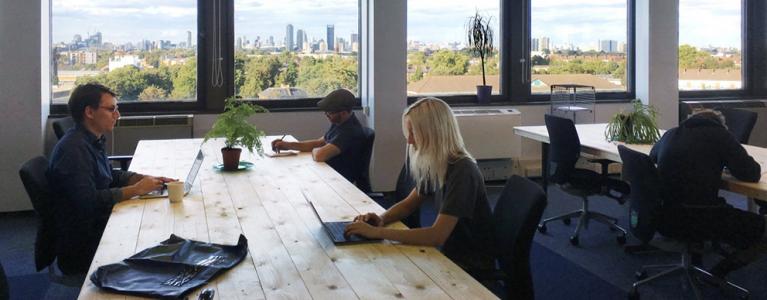
Right now, many local authorities are grappling with the challenges and opportunities of creating local workspaces on our high streets. Looking outside the Central Activities Zone, there are a range of drivers motivating this ambition, including the need to increase footfall within local centres, a desire to increase locally based employment, supporting the growth of micro SMEs and BAME-led businesses, developing clusters that support specific local employment sectors, and concerns about further loss of general employment space as a result of proposed planning changes.
In each scenario, the challenge of delivering workspaces typically involve consideration: of (1) the scale of operation - making the space financially viable whilst remaining affordable, particularly given social distancing requirements; as well as (2)the scale of investment required and which stakeholders are needed.
To seize opportunities, local authorities need to understand the nature of spaces available and identify relevent local stakeholders. The character of the space, whether small scale retail units, under-utilised council assets, or large shopping centre units, will go some way in identifying the types of local stakeholder that can support delivery, whether collaborative landlords, existing workspace operators or local SMEs.
Each option presents opportunities for different potential models; from local business-led initiatives using volunteering, to workspace operator managed facilities with a variety of social enterprise or commercial arrangements, to simple commercial leases after initial capital investment that lowers the threshold to new uses.
In practice: converting existing council assets into workspaces
- Catford DEK studios in Lewisham are bringing life back into the old town hall in Catford, providing much needed affordable, flexible and creative workspace for artists and designers in the borough.
- Bracknell Forest Council’s EastHampstead Works combines affordable workspace for businesses, with flexible, adaptable studio and events spaces.
- International House Workspace, Brixton is a council asset let to workspace operator 3Space at a low cost to deliver social and economic outcomes. Sitting with the Mayor’s Creative Enterprise Zone, spaces are available to rent and for free to community groups.
- The Startup Mall, Kings Mall, Hammersmith offers formally vacant units within the mall to entrepreneurs, makers and technologists who want to test new ideas.
Given the new planning reforms (Use Classes Order) and the potential long lasting post pandemic impacts on work patterns, there is a key opportunity for local authorities to consider increasing their ownership stake in their high streets. This could enable the development of long-term places for work that respond to local economic and social challenges and high street vacancies. This approach is demonstrated by Sutton Council’s plans to convert the former BHS department store on Sutton High Street into a workspace.
Additionally, there is opportunity to see whether some locations that currently act as transport hubs for commuters working in central London, could benefit from local high street work hubs. Corporate memberships of local workspaces could underpin their wider viability while enabling some near home working for their employees.
Understanding local housing stock can help identify the type of workspace need. For example, neighbourhoods with a large proportion of family sized houses may have sufficient space for home offices but create a demand for local meeting spaces; whereas occupiers of flatted blocks may be more likely to need local workspaces due to lack of space at home. Conversely, there are clear opportunities to incorporate safe local places for work in residential developments, as demonstrated in the Small Office Home Office model in La Chappelle, Paris. In short, while the long-term future of workspace remains hard to predict, local authorities during this period of change have an opportunity to support changing needs of businesses and to reconfigure our neighbourhoods to become more diverse, resilient and sustainable places.
Alice Fung is a Mayor’s Design Advocate and member of the Workspace Advisory Group (WAG).
In recognition of the important role that shared workspaces play in London’s economy, the WAG provides strategic advice to the Mayor and LEAP on key issues facing the providers and tenants. Over the next months the WAG will focus on the longer term recovery and success of London’s workspaces. This work will build on recommendations outlined in the Workspace Affordability Crisis reports that respond to the impact that business rates have had in the sector and the delivery the London Growth Hub’s Shared Workspace Support Programme.